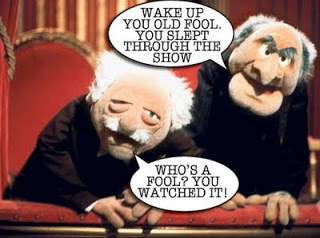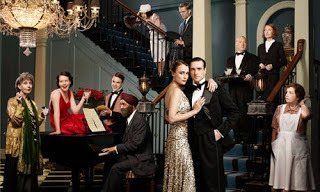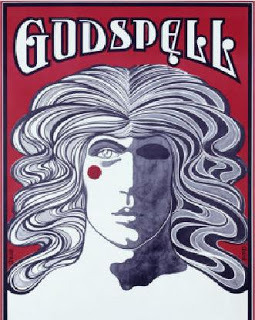Marc Acito's Blog, page 5
April 18, 2011
New Yorker article on "The Tools" for Writers
This New Yorker article on the Hollywood therapist who primarily serves writers really hit me where I live.
Barry Michaels and his mentor Phil Stutz have developed an approach that uses Jungian archetypes (very appealing to us storytellers), but in new and unconventional ways. For instance:
Patients are told to visualize things going horribly wrong, a strategy of "pre-disappointment." The tool for this, which Michels and Stutz teach to those who are hoping to win an award or who are about to submit a script for approval, involves imagining yourself falling backward into the sun, saying "I am willing to lose everything" as you are consumed in a giant fireball, after which, transformed into a sunbeam, you profess, "I am infinite."
Sounds weird, I know, but Stutz's patients have won over a dozen Oscars. And I'm a great believer in the adage "If you want what somebody has, do what they do," so I'm intrigued. I'm particularly drawn to the idea of embracing your shadow self and welcoming pain.
Take a look. I think they're on to something.
Barry Michaels and his mentor Phil Stutz have developed an approach that uses Jungian archetypes (very appealing to us storytellers), but in new and unconventional ways. For instance:
Patients are told to visualize things going horribly wrong, a strategy of "pre-disappointment." The tool for this, which Michels and Stutz teach to those who are hoping to win an award or who are about to submit a script for approval, involves imagining yourself falling backward into the sun, saying "I am willing to lose everything" as you are consumed in a giant fireball, after which, transformed into a sunbeam, you profess, "I am infinite."
Sounds weird, I know, but Stutz's patients have won over a dozen Oscars. And I'm a great believer in the adage "If you want what somebody has, do what they do," so I'm intrigued. I'm particularly drawn to the idea of embracing your shadow self and welcoming pain.
Take a look. I think they're on to something.
Published on April 18, 2011 04:00
April 15, 2011
Are Musicals Losing Their Voices?
Charles Isherwood posed that question on the New York Times blog, citing Neil Patrick Harris, Catherine Zeta Jones and Daniel Radcliffe as evidence:
He writes:
He makes a good point, but there are two celebrities who started the whole trend. They are:
1) Marlon Brando: That's right. When Marlon Brando famously mumbled his way through A Streetcar Named Desire in 1947, it caused a revolution in acting styles. From then on, audiences have come to expect a naturalistic, conversational style directly at odds with the peel-the-paint-off-the-walls impulse of a musical. True musical theater talent have to make their name in Hollywood doing exactly the opposite of what they're good at so they can come back to Broadway to use the muscles they haven't been developing.
Even when stars aren't cast, shows seem to shy away from big voices. I've seen reliably employed Broadway talent with voices so small they couldn't be heard behind a wet newspaper.
2) Elvis Presley: When rock 'n roll took the country by storm, Broadway struggled to keep up. Indeed, the first show to integrate rock music was Bye, Bye Birdie, a satire of Elvis going into the army. To do rock-oriented shows you need amplification. Once you get a mike, you don't need a big voice. It's an arms race - the band gets louder, the mike gets turned up, the singer can whisper and the star of the show is the sound guy.
One of the reasons Merman could be heard all the way to the back row was the orchestration. Listen to those old recordings - she's not competing with the brass. She's her own brass section.
Isherwood asked if anyone else shared his anxiety. My answer is yes. So I'm glad he's talking about it.
He writes:
Are we entering an age when being able to sing to a high standard is no longer a requirement for making appearances in even first-class musical theater productions? The unhappy answer is probably yes. The casting of movie stars has been de rigueur for revivals of classic plays for some time now on Broadway, but in the past couple of seasons we've seen the trend encroaching on musical theater terrain, too...
At a time when the hugely popular "American Idol" has enshrined a fine voice (of a particular flamboyant kind, it's true) as a prize-worthy endowment worthy of national celebration, it seems a dismaying irony that Broadway should be moving in the other direction, relegating the possession of a solid singing voice into the optional category, several notches below celebrity on the list of necessary requirements.
He makes a good point, but there are two celebrities who started the whole trend. They are:
1) Marlon Brando: That's right. When Marlon Brando famously mumbled his way through A Streetcar Named Desire in 1947, it caused a revolution in acting styles. From then on, audiences have come to expect a naturalistic, conversational style directly at odds with the peel-the-paint-off-the-walls impulse of a musical. True musical theater talent have to make their name in Hollywood doing exactly the opposite of what they're good at so they can come back to Broadway to use the muscles they haven't been developing.
Even when stars aren't cast, shows seem to shy away from big voices. I've seen reliably employed Broadway talent with voices so small they couldn't be heard behind a wet newspaper.
2) Elvis Presley: When rock 'n roll took the country by storm, Broadway struggled to keep up. Indeed, the first show to integrate rock music was Bye, Bye Birdie, a satire of Elvis going into the army. To do rock-oriented shows you need amplification. Once you get a mike, you don't need a big voice. It's an arms race - the band gets louder, the mike gets turned up, the singer can whisper and the star of the show is the sound guy.
One of the reasons Merman could be heard all the way to the back row was the orchestration. Listen to those old recordings - she's not competing with the brass. She's her own brass section.
Isherwood asked if anyone else shared his anxiety. My answer is yes. So I'm glad he's talking about it.
Published on April 15, 2011 09:11
April 13, 2011
6 Tips for Dealing with Criticism

Getting criticized is a crucial part of the creative process - and yeah, it bites. When a writing student called me in a complete tailspin over a critique she received (from someone else, mind you), here are the tips I used to unspin her tail:
1) Welcome it: Keep telling yourself, "Hearing this will make my piece better. I want to know what doesn't work."
2) Consider it: Is there truth in what they're saying? If it bugs you a lot, it might.
3) Analyze it: Does it remind you of some age-old criticism? It could be bringing up the curtain on a psychodrama that has nothing to do with your work.
4) Question it: It's possible this person's perspective and biases aren't valid. Even with the best intentions, people have their blind spots.
5) Table it: Wait for an aggregate opinion and see what's the consensus. If you're getting the same note from multiple sources, go back to step #1.
6) Fix it: Sometimes the issue is systemic and requires a radical overhaul and sometimes you change one simple thing and everything falls into place. You won't know until you try.
Oh, and don't forget to breathe. Criticism won't kill you, but not breathing will.
Okay, back to work...
Published on April 13, 2011 10:25
April 11, 2011
Upstairs, Downstairs

Watched the new Upstairs, Downstairs on PBS Masterpiece last night and was reminded why a billion people worldwide watched the original.
Yes, there are all the details about British class structure and repressed "stiff-upper-lip" feelings that fascinate me (and attracted me to adapt A Room with a View as a musical) And the Long-Suffering Floyd and I totally geeked out on the historical setting (Wallis Simpson coming to dinner - tell me more!)
But what made it great was its nuanced view of human nature, how each of the characters is fully rounded with both flaws and virtues. A story about servants and masters could easily fall into the trap of making it about duality. The title alone invites it: Upstairs, Downstairs. Up, down. Yes, no. Good, bad.
While I think the balance of yin and yang is one of the great universal truths, it's not as simple as good guys and bad guys, black hats, white hats. That kind of oversimplification doesn't just bore me, I think it's dishonest. It's why my favorite part of the Lord of the Rings movies was Gollum, whose central conflict was his own internal battle between selfishness and selflessness. (I say the movies because I couldn't wade through the books, which feel like work to me.)
This balanced view of humanity is also what attracted me and Broadway composer Jeffrey Stock to E.M. Forster's A Room with a View. No matter how mercilessly Forster skewers Edwardian behavior, he always digs deep into his characters' hearts, the very place from which music springs. The impassioned pleas of the Emersons, the inner turmoil of Lucy and Charlotte, the comic foibles as cultures and morals collide—the song opportunities seem to leap off the page.
The takeaway for the writer, then, is this: Are my characters well-rounded? Is my hero flawed? Does my villain have a heart? Do the supporting characters have more than one dimension?
Okay, back to work...
Published on April 11, 2011 07:45
February 7, 2011
Opening sentences
I've been thinking a lot about openings - of the literary variety, as well the theatrical. More and more I'm seeing how if you don't let a reader or audience see clearly from the onset what they're in for, they might never get on the ride.
I'm currently working on six musicals at once, so I'm still sorting out my thoughts on what's needed there, but I can post here my thoughts on what makes a great opening for a novel.
I think the best first lines do the following:
1) Make a strong impact
2) Convey mystery and suspense
3) Relate to the overall theme of the book
Perhaps the finest example is from E.B. White's Charlotte's Web:
"Where's Papa going with that ax?" said Fern to her mother as they were setting the table for breakfast.
One simple line accomplishes all three conditions. 1) What could be a stronger impact than an ax? 2) The suspense is inherent in the question and, most artfully, 3) The sentence encapsulates the entire premise and central conflict of the book, which is that Wilbur the pig will be slaughtered. Moreover, it does it in a matter-of-fact way over breakfast, underscoring White's theme of the naturalness of the cycles of life.
It's a brilliant sentence.
Here are some of my other favorites:
Tap-dancing child abuser. That's what The Sunday New York Times from March 8, 1993, had called Vivi.
Divine Secrets of the Ya-Ya Sisterhood, Rebecca Wells
I am doomed to remember a boy with a wrecked voice – not because of his voice, or because he was the smallest person I ever knew, or even because he was the instrument of my mother's death, but because he is the reason I believe in God; I am a Christian because of Owen Meany.
A Prayer for Owen Meany, John Irving
Mr. and Mrs. Dursley, of number four, Privet Drive, were proud to say that they were perfectly normal, thank you very much.
Harry Potter and the Sorcerer's Stone, J.K. Rowling
Mrs. Dalloway said she would buy the flowers herself.
Mrs. Dalloway, Virginia Woolf
Lolita, light of my life, fire of my loins.
Lolita, Vladimir Nabokov
One dollar and eighty-seven cents. That was all.
The Gift of the Magi, O.Henry
It is a truth universally acknowledged, that a single man in possession of a good fortune, must be in want of a wife.
Pride and Prejudice, Jane Austen
Someone was looking at me, a disturbing sensation if you're dead.
A Certain Slant of Light, Laura Whitcomb
All children, except one, grow up.
Peter Pan, James Barrie
If you really want to hear about it, the first thing you'll probably want to know is where I was born, and what my lousy childhood was like, and how my parents were occupied and all before they had me.
The Catcher in the Rye, J.D. Salinger
I'm currently working on six musicals at once, so I'm still sorting out my thoughts on what's needed there, but I can post here my thoughts on what makes a great opening for a novel.
I think the best first lines do the following:
1) Make a strong impact
2) Convey mystery and suspense
3) Relate to the overall theme of the book
Perhaps the finest example is from E.B. White's Charlotte's Web:
"Where's Papa going with that ax?" said Fern to her mother as they were setting the table for breakfast.
One simple line accomplishes all three conditions. 1) What could be a stronger impact than an ax? 2) The suspense is inherent in the question and, most artfully, 3) The sentence encapsulates the entire premise and central conflict of the book, which is that Wilbur the pig will be slaughtered. Moreover, it does it in a matter-of-fact way over breakfast, underscoring White's theme of the naturalness of the cycles of life.
It's a brilliant sentence.
Here are some of my other favorites:
Tap-dancing child abuser. That's what The Sunday New York Times from March 8, 1993, had called Vivi.
Divine Secrets of the Ya-Ya Sisterhood, Rebecca Wells
I am doomed to remember a boy with a wrecked voice – not because of his voice, or because he was the smallest person I ever knew, or even because he was the instrument of my mother's death, but because he is the reason I believe in God; I am a Christian because of Owen Meany.
A Prayer for Owen Meany, John Irving
Mr. and Mrs. Dursley, of number four, Privet Drive, were proud to say that they were perfectly normal, thank you very much.
Harry Potter and the Sorcerer's Stone, J.K. Rowling
Mrs. Dalloway said she would buy the flowers herself.
Mrs. Dalloway, Virginia Woolf
Lolita, light of my life, fire of my loins.
Lolita, Vladimir Nabokov
One dollar and eighty-seven cents. That was all.
The Gift of the Magi, O.Henry
It is a truth universally acknowledged, that a single man in possession of a good fortune, must be in want of a wife.
Pride and Prejudice, Jane Austen
Someone was looking at me, a disturbing sensation if you're dead.
A Certain Slant of Light, Laura Whitcomb
All children, except one, grow up.
Peter Pan, James Barrie
If you really want to hear about it, the first thing you'll probably want to know is where I was born, and what my lousy childhood was like, and how my parents were occupied and all before they had me.
The Catcher in the Rye, J.D. Salinger
Published on February 07, 2011 22:56
January 25, 2011
Feedback on Writing
I started teaching this past week, so I've been thinking a lot about giving feedback. Funny word, feedback, calling to mind as it does sense-memories of an ear-splitting sonic boom. Which is how most of us respond to getting notes on our writing.
Let's face it, what all of us secretly want is for an influential person to read our work and praise our hitherto unrecognized genius. And even if your work is critiqued gently and accurately, it can still feel like a threat to your survival.
The internal drama goes something like this: "I dwell in a magical fantasy place of my own, an expression of my truest, purest essence. I want to share with others, but if I do anything to alter it, I'll banish myself from my own personal Eden. Why can't other people see this world the way I do? What's wrong with these people?"
Or at least that's what goes through my head.
But since I've started writing for the theater, which is so collaborative, I've come to see how all storytelling is a conversation between creator and audience, a game of tennis. If we as writers don't make ourselves understood, we are playing handball, hoping someone will sit on the sidelines and cheer.
That's not how it works. No one ever got up at an awards show and said, "Y'know, I did this all alone with no help, so I'd like to take this opportunity to thank myself." If you want to reach an audience with your work, you have to be willing to listen to them.
But that should be nourishing, not punishing. Which is why I've decided that, instead of "feedback," I'm going to give my students "feedbag."
That way they'll have something to munch on.
Let's face it, what all of us secretly want is for an influential person to read our work and praise our hitherto unrecognized genius. And even if your work is critiqued gently and accurately, it can still feel like a threat to your survival.
The internal drama goes something like this: "I dwell in a magical fantasy place of my own, an expression of my truest, purest essence. I want to share with others, but if I do anything to alter it, I'll banish myself from my own personal Eden. Why can't other people see this world the way I do? What's wrong with these people?"
Or at least that's what goes through my head.
But since I've started writing for the theater, which is so collaborative, I've come to see how all storytelling is a conversation between creator and audience, a game of tennis. If we as writers don't make ourselves understood, we are playing handball, hoping someone will sit on the sidelines and cheer.
That's not how it works. No one ever got up at an awards show and said, "Y'know, I did this all alone with no help, so I'd like to take this opportunity to thank myself." If you want to reach an audience with your work, you have to be willing to listen to them.
But that should be nourishing, not punishing. Which is why I've decided that, instead of "feedback," I'm going to give my students "feedbag."
That way they'll have something to munch on.
Published on January 25, 2011 09:23
January 19, 2011
Broadway Musical Quiz
I got 46 out of 51 on this Broadway musical quiz.
Actually, it was 45 because they didn't count my typo on Wet Side Story.
Perhaps they should just call it "How geeky are you?" and be done with it.
Actually, it was 45 because they didn't count my typo on Wet Side Story.
Perhaps they should just call it "How geeky are you?" and be done with it.
Published on January 19, 2011 17:14
January 18, 2011
Philosophizin'
In applying for a teaching job recently I was asked to share my teaching philosophy. I'm glad they asked because I didn't realize I had one. I mean, I knew I had ideas, but there's nothing like a direct question to focus your attention. Your attention meaning mine.
Here it is:
The summer I was sixteen I was hired to choreograph a musical for a middle-school theater program. Having been a veteran of many such performances myself, I knew what quality to expect from suburban kids with more enthusiasm than grace. So rather than teach a dance combination to assess how the kids moved, I decided instead to work from what they knew.
"Who can do a pirouette?" I asked. "Who can do a cartwheel?" The girls who studied dance volunteered, demonstrating their abilities, while I noted their names. From there, I worked my way down to the simplest dance steps, seeing who could do what. Then I choreographed the numbers to suit the varying abilities of 50 some-odd children.
The result was that everyone looked great. The students who could really dance got to show off their best moves; the ones who couldn't were featured in parts of the dance that emphasized stage business over routines. Moreover, by grouping them according to their strengths and weaknesses, I was able to teach them all something that made them better, so that they all walked away from the experience with new skills and confidence.
That summer made a lasting impact on how I've approached students ever since. While I delight in imparting information and helping people of all ages to grow and learn, I still make a point to examine what the students' points of entry are, to provide the best counsel for them to excel.
I have continually returned to teaching as a means of supplementing my career as an artist, first as a professional opera singer, then as a writer. Having amassed a substantial amount of experiences as a published novelist, commentator and produced playwright, teaching has increasingly become an essential component to my work.
As I move into a new phase of life mid-career, I am committed to building teaching into a cornerstone foundation for the rest of my life.
Few things in my life make me as joyful as raising someone's awareness – it's part of my mission as an artist, and motivates my enthusiasm and passion for teaching. I consider even the briefest encounter with a student to be an honor and an opportunity to put some good into the world.
And on that very earnest note, ladies and gentlemen, Kristin Chenoweth...

Here it is:
The summer I was sixteen I was hired to choreograph a musical for a middle-school theater program. Having been a veteran of many such performances myself, I knew what quality to expect from suburban kids with more enthusiasm than grace. So rather than teach a dance combination to assess how the kids moved, I decided instead to work from what they knew.
"Who can do a pirouette?" I asked. "Who can do a cartwheel?" The girls who studied dance volunteered, demonstrating their abilities, while I noted their names. From there, I worked my way down to the simplest dance steps, seeing who could do what. Then I choreographed the numbers to suit the varying abilities of 50 some-odd children.
The result was that everyone looked great. The students who could really dance got to show off their best moves; the ones who couldn't were featured in parts of the dance that emphasized stage business over routines. Moreover, by grouping them according to their strengths and weaknesses, I was able to teach them all something that made them better, so that they all walked away from the experience with new skills and confidence.
That summer made a lasting impact on how I've approached students ever since. While I delight in imparting information and helping people of all ages to grow and learn, I still make a point to examine what the students' points of entry are, to provide the best counsel for them to excel.
I have continually returned to teaching as a means of supplementing my career as an artist, first as a professional opera singer, then as a writer. Having amassed a substantial amount of experiences as a published novelist, commentator and produced playwright, teaching has increasingly become an essential component to my work.
As I move into a new phase of life mid-career, I am committed to building teaching into a cornerstone foundation for the rest of my life.
Few things in my life make me as joyful as raising someone's awareness – it's part of my mission as an artist, and motivates my enthusiasm and passion for teaching. I consider even the briefest encounter with a student to be an honor and an opportunity to put some good into the world.
And on that very earnest note, ladies and gentlemen, Kristin Chenoweth...
Published on January 18, 2011 08:30
January 14, 2011
Broadway Bound
It's official: I'm going to be on Broadway...

...on a poster, at least. Find out how you can, too here.

...on a poster, at least. Find out how you can, too here.
Published on January 14, 2011 13:39
January 11, 2011
Words and Meaning
 I can't stop thinking about Christina Green, the nine-year-old killed during the mass shooting in Arizona. I can't – or, more accurately, don't want to – imagine what her parents are going through – so the thought that keeps tumbling through my mind like a sneaker in the dryer is that Christina was born on 9/11. If I had created that scenario in fiction, most editors would say it's contrived. But it happened and it's now part of the narrative that's being told hour by hour.
I can't stop thinking about Christina Green, the nine-year-old killed during the mass shooting in Arizona. I can't – or, more accurately, don't want to – imagine what her parents are going through – so the thought that keeps tumbling through my mind like a sneaker in the dryer is that Christina was born on 9/11. If I had created that scenario in fiction, most editors would say it's contrived. But it happened and it's now part of the narrative that's being told hour by hour. This tragedy is a perfect example of the basic human desire for stories. We're all watching the news trying to get answers, to make sense of senselessness. It's a way of legislating against our existential fear of the unknown. Or at least that's what it is for me. I don't know if I became a writer because I seek meaning or seek meaning because I became a writer.
You couldn't construct a better narrative – the moment conservatives take control of Congress, a tragedy that seems related to their own violent rhetoric stalls them.
Regarding that rhetoric, as a writer I reject – indeed, am offended – by the claim that it had nothing to do with the act of an unstable young man. As Hub Theatre artistic director Helen Pafumi said to me on the way to the airport, "I know it's free speech, but here's the guideline for politicians: if what they say could get the rest of us arrested in an airport, they shouldn't say it."
Regardless of whether Tea Party rhetoric had a direct effect or not on a kid having a psychotic break, words have meaning and they contribute to an atmosphere. In the Too Much Information Age, the easiest way to be heard above all the blather is to make the loudest and most outrageous statement. It's an arms race of words and it can only lead to annihilation. So I'll say it again, because it's so simple and wise: If what a politician says could get the rest of us arrested in an airport, they shouldn't say it.
There seems to be a feeling in the media – who are all storytellers – that we've reached a turning point. But life is lived forward and only understood in reverse, so we won't know for a while how Christina Green , who was included in a book called Faces of Hope, will be seen as a symbol. As a writer and teacher of story structure, I see two possible outcomes in how history gets written here. In the tragic version, the Hope that was born on 9/11 – the feeling that united we stand – has been killed by the kind of divisive hate that also came out of 9/11.
Or else it becomes a myth of martydom – that it took the murder of an innocent child to finally get the opposing forces in this country to finally work together.
The story is ours to write.
Published on January 11, 2011 09:00
Marc Acito's Blog
- Marc Acito's profile
- 78 followers
Marc Acito isn't a Goodreads Author
(yet),
but they
do have a blog,
so here are some recent posts imported from
their feed.



